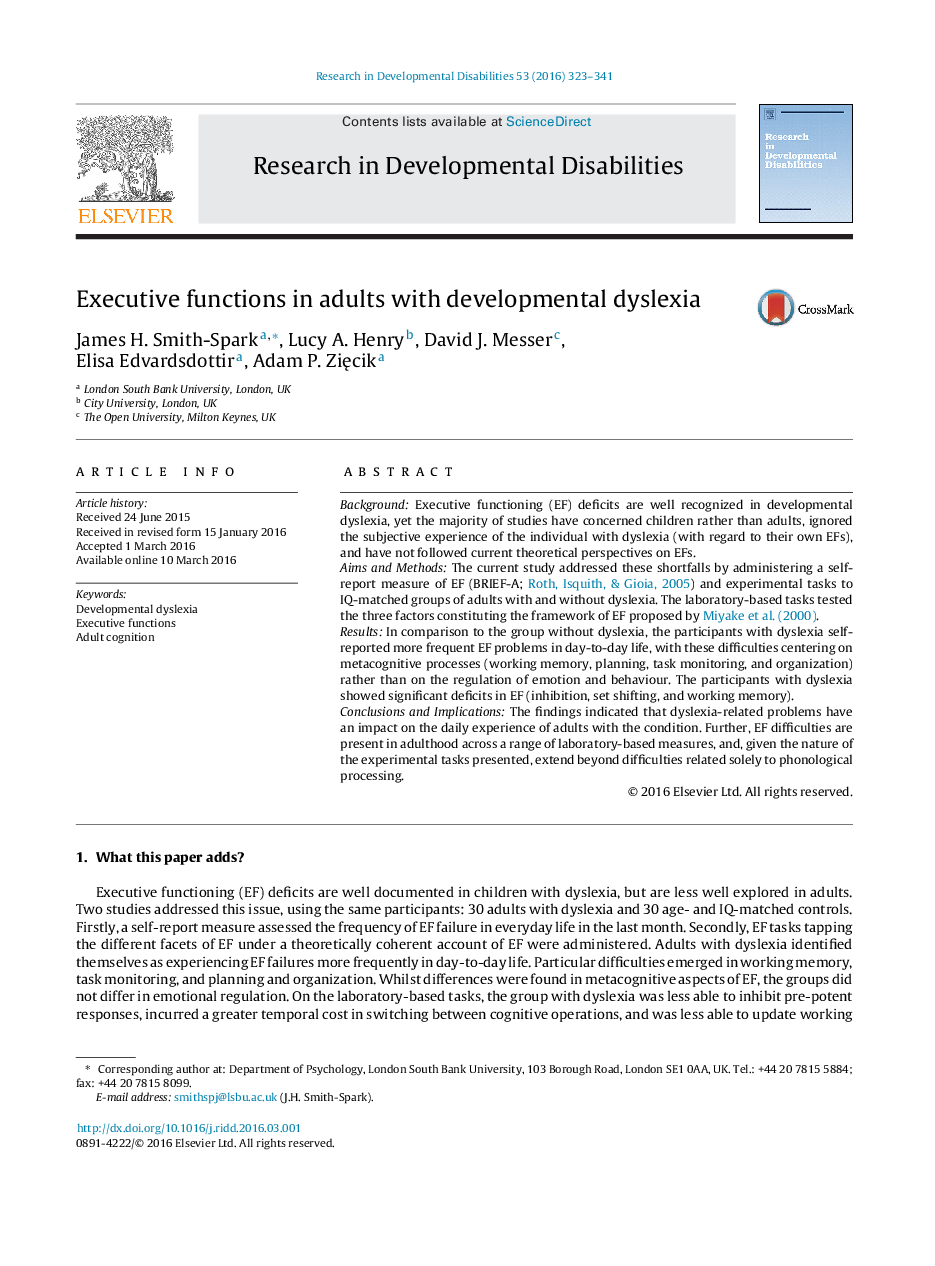| Article ID | Journal | Published Year | Pages | File Type |
|---|---|---|---|---|
| 370992 | Research in Developmental Disabilities | 2016 | 19 Pages |
•Executive functioning less thoroughly investigated in adults with dyslexia.•Everyday impact of EF deficits on adults with dyslexia not considered previously.•Everyday EF questionnaire and theoretically coherent EF tasks given to same sample.•More frequent EF difficulties in daily life self-reported by adults with dyslexia.•Dyslexia-related EF deficits found across inhibition, set shifting, and updating
BackgroundExecutive functioning (EF) deficits are well recognized in developmental dyslexia, yet the majority of studies have concerned children rather than adults, ignored the subjective experience of the individual with dyslexia (with regard to their own EFs), and have not followed current theoretical perspectives on EFs.Aims and MethodsThe current study addressed these shortfalls by administering a self-report measure of EF (BRIEF-A; Roth, Isquith, & Gioia, 2005) and experimental tasks to IQ-matched groups of adults with and without dyslexia. The laboratory-based tasks tested the three factors constituting the framework of EF proposed by Miyake et al. (2000).ResultsIn comparison to the group without dyslexia, the participants with dyslexia self-reported more frequent EF problems in day-to-day life, with these difficulties centering on metacognitive processes (working memory, planning, task monitoring, and organization) rather than on the regulation of emotion and behaviour. The participants with dyslexia showed significant deficits in EF (inhibition, set shifting, and working memory).Conclusions and ImplicationsThe findings indicated that dyslexia-related problems have an impact on the daily experience of adults with the condition. Further, EF difficulties are present in adulthood across a range of laboratory-based measures, and, given the nature of the experimental tasks presented, extend beyond difficulties related solely to phonological processing.
